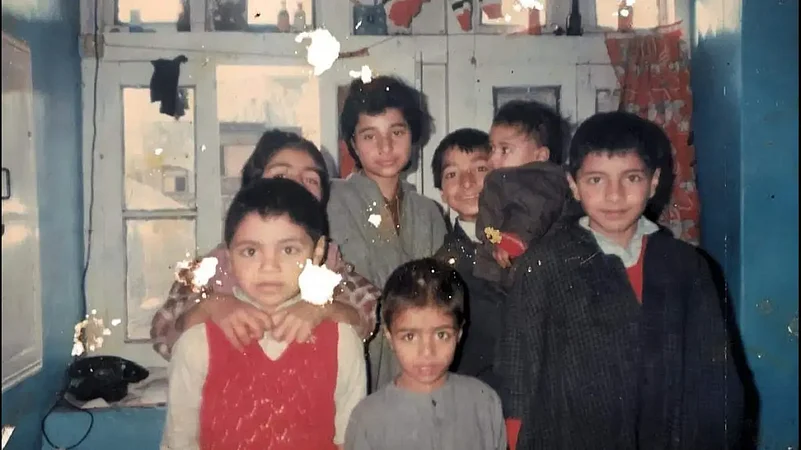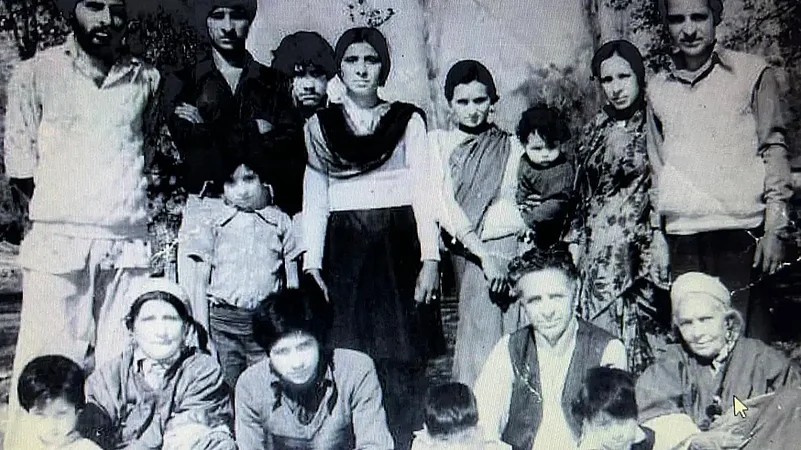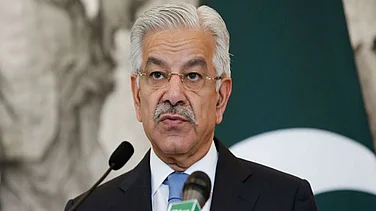After living in Kashmir all their lives, Ashok Raina and his family바카라 웹사이트had just about바카라 웹사이트12바카라 웹사이트hours to decide if they wanted to leave Anatanag alive or get killed by the bullets of Pakistan backed바카라 웹사이트militants. Hours before this, the militants had shot down a senior Kashmiri Pandit lawyer P N Bhat on December 27, 1989, in broad daylight in바카라 웹사이트Anantnag. Targeted killings of Kashmiri Pandits had become an everyday reality.
Ashok Raina, 38, who was also on the hit list of a militants’ organisation and a few separatists, decided to escape바카라 웹사이트to Jammu. He managed to flee Anantnag with the help of his brother바카라 웹사이트Roshan Lal Raina. When. He reached Jammu, Raina was바카라 웹사이트almost penniless, heartbroken and carrying just the pair of clothes and slippers he was wearing.
“A top cop, a nice humble Muslim officer, had told my brother earlier in the day to convince me to flee before the next morning. I was a target and my killing was planned within the next 12 hours," Raina, a scribe then working with a national media agency, tells 바카라, recalling the horror of 1990s바카라 웹사이트Kashmir.
It was 3 am in the morning when Raina바카라 웹사이트took a lift from a truck driver fleeing from the militant-torn valley. Before this, he sat down in front of Government Degree College, Anantnag –where he had graduated and cried over his fate to desert his homeland, which has countless tales of love, hope and Hindu-Muslim unity dispersed through its history.
His father –a renewed Sanskrit scholar Kashi Nath 'Bagwan', mother Soomawati Raina, wife and children followed one by one to join him in Jammu where he took shelter with some friends.
For the Rainas, the decision to leave behind all their바카라 웹사이트property, a massive sprawling bungalow built in the heart of Anantnag town by his ancestors after바카라 웹사이트painstakingly investing all their earnings바카라 웹사이트was not an easy one.

“We were a joint family of almost 30-odd members, children of varying ages바카라 웹사이트and elders. Our house had always been abuzz with literary and scholarly discussions. Our Muslim brothers were part of this extended family. My father was really a revered literary figure and academician in the area. He had translated Bhagwat Geeta into Kashmiri”바카라 웹사이트 Raina, who is now 71, narrates with pride.
A migrant since then, the deepest pain in Raina's바카라 웹사이트heart after바카라 웹사이트33 years of despair and displacement is that he could not fulfil the last wish of his father who wanted his last rites to be performed in Kashmir, the land he was born and raised in.
Over the years, Raina also lost his mother and several close relatives who바카라 웹사이트could not live with the pains and horror of bloodshed in Kashmir, the burden of migration and spending the rest of their lives, either in camps or rented spaces.
Following the exodus, the pitiable living conditions of migrants in Jammu, deaths due to heat/sunstrokes, snake bites, and a lack of healthcare바카라 웹사이트and basic facilities pushed several migrants to die in these camps.바카라 웹사이트Many from the migrant Kashmiri Pandit community, however, feel바카라 웹사이트that they still remain unheard.바카라 웹사이트
“After migration, I바카라 웹사이트spent few days in Jammu, almost jobless and shattered. No one really came forward to help us. Not the government, neither political parties nor individual바카라 웹사이트philanthropists. I have survived all these years despite the humiliation and an initially meagre salary of Rs 125 a day," Raina recounts.
Eventually, Raina chose to migrate with his family바카라 웹사이트to Kangra in Himachal Pradesh mainly because the climatic conditions suited his family elders and kids,바카라 웹사이트who were studying in nursery, class IV and class XII at the time. The cold winds of the hills reminded them of their home Kashmir. Before they moved to Himachal,바카라 웹사이트most Kashmiri Pandit migrants like Raina바카라 웹사이트were living in two-room rented tenements in Jammu camps with no toilet or washroom facility. This was their entire world.
There were around 59 Kashmiri migrant families who came to Kangra in Himachal Pradesh and some also took shelter in Solan and Shimla. Few also bought lands and houses and gradually,바카라 웹사이트their children grew up and went to study in different educational institutions within and outside the state .
IAS officer Dr Ashwani K Sharma , who was sub-divisional Magistrate (SDM) Kangra in 2003, recalls how some families바카라 웹사이트had left바카라 웹사이트properties worth crores back in Kashmir and fled to save their lives. "There were several issues related to their settlements, children's education and financial assistance. There are so many painful stories about their lives. I tried to extend whatever help we (government) or I individually바카라 웹사이트could," Sharma tells 바카라.
Raina라이브 바카라 three sons are now grown-up and two of them are settled in the US while one is in Jammu.
“I really don't know how we survived all these days and how the children overcame the trauma. Many Kashmiri families who came to Himachal Pradesh바카라 웹사이트saw their바카라 웹사이트kids taking바카라 웹사이트up alternate career paths. It라이브 바카라 God who has been kind to us, all –not any government or political party. They are only looking after바카라 웹사이트their vote banks and keeping the Kashmiri migrant issue alive through films like Kashmir Files for political gains," Raina says.바카라 웹사이트바카라 웹사이트
He adds that nobody from the community in Himachal wants to go back to Kashmir for fear of another forced migration. "We can't face another migration anymore. Most families have settled down where the kids. Their properties were taken over, destroyed and a few had to make distress sales바카라 웹사이트as well. I too abandoned the house and sold off all assets at a throwaway price. Only four such families are left in Kangra now," he added.
But the septuagenarian doesn't want to move again and says he wants to spend the rest of his days in the hills of Himachal in peace under the shadow of Dhauladhar.
While Raina lives on with the memory of his father's last wish, Dr Shaily Fotedar, a professor at Government Dental College in Shimla, pointed out that the exodus was equally traumatic바카라 웹사이트for children.
바카라 웹사이트

"I was in class XI waiting for final exams.바카라 웹사이트I still have memories of childhood --lots of friends among Muslim girls, the games we used to play and the visits to each other houses. In January 1990, Kashmir was witnessing bloodshed and mass migration of Kashmiri pandit families from the valley. Pandit families repeatedly received threats. Students' exams also got delayed. Finally, we left the valley as well. " she recalls.
Thereafter, she went on to pursue her studies in Karnataka. Despite their harrowing experiences, most Kashmiri Pandit parents바카라 웹사이트made an effort to see their children stay safe and educated away from the Valley.
Dr Shaily admits those days of childhood lost in militancy and migration바카라 웹사이트created a lasting impact on the minds of children at the time which still colours their views. "I don't think many will return to the Valley바카라 웹사이트or get united with바카라 웹사이트their Muslim friends today," she posits.














